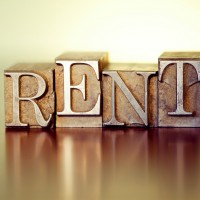Investing in rental property can be a profitable and rewarding venture. With the right knowledge and preparation, it can provide a steady stream of income and long-term financial security. However, there are both pros and cons to consider when making the decision to invest in a rental property in 2023. It’s important to understand the potential risks and rewards that come with investing in real estate, and weigh them carefully before committing to a purchase. By understanding the advantages and disadvantages of investing in rental property in the current market, you can make an informed decision that best suits your individual circumstances.
Overview of investing in rental property
Real estate investments are among the most popular methods of building long-term wealth. Choosing the right property and location can have a significant impact on the amount you earn from your investment, as well as the risk involved. Property types vary greatly, and include single-family or multi-family houses, commercial buildings, raw land, and developed land, such as RV parks. In addition to long-term appreciation, rental real estate can provide an additional source of income through rental payments. This can be a lucrative source of regular income, but it comes with added risk and responsibility compared to owning other types of real estate investments.
Pros of investing in rental property in 2023
There are many advantages to investing in rental properties. First, it provides a regular stream of income from tenants. Second, it can provide long-term financial security through the potential for rental rates to increase over time. The value of rental properties can also go up significantly over time, especially if the property is held for several years. This can provide a major payday if you decide to sell the property. Other potential benefits of rental property investments include tax advantages and the ability to diversify your investment portfolio.
Cons of investing in rental property in 2023
The downside of rental property investing is the added risk and responsibility that come with managing tenants. This can be a challenging aspect of the investment, especially if you do not have previous experience. You may be required to make repairs to the property, handle maintenance issues, and deal with tenant disputes, all while managing a long-distance relationship with the property.
How to choose the right rental property
The first step to finding the right rental property is to do your research. Look for areas of the country that have a steady rental demand and a growing long-term rental population. Also, consider the rental rates in various areas, and make sure they are high enough to be profitable. You should also take the time to find the right property for your investment needs. There are several different types of rental properties to choose from, each with their own pros and cons. For example, single-family and multi-family houses provide stability and long-term cash flow, but they come with higher upfront costs and may be harder to find tenants for. Commercial properties are often more profitable, but are usually more expensive, and may require more upfront money.
What to consider when evaluating potential rental properties
When evaluating potential rental properties, you should take the time to understand the area and the property itself. For example, you should carefully research the neighborhood, demographics, and nearby amenities. You should also examine the property itself and take into account any potential issues with the property. You should look closely at the rental rates compared to the monthly rent payments, and make sure they are high enough to be profitable. You should also give careful consideration to the amount of ongoing maintenance required for the property, and the amount of money needed to purchase the property in the first place. You should also consider the rental rates in relation to potential increases in rental rates. You should also take into account the amount of time it could take to find tenants for the property.
Tips for finding financing for rental properties
Financing options for rental property investments vary depending on the type of property you are investing in. Generally, commercial properties often come with higher financing requirements. However, there are several financing options available for investment properties, including mortgages, lines of credit, and equity lines of credit. You may also be eligible for government-backed financing, such as through the Department of Veterans Affairs (VA) and the Federal Housing Administration (FHA). You should research financing options carefully before making a commitment. You should know the requirements and be prepared to provide a substantial down payment, as well as pay a higher interest rate. You should also consider the long-term financial implications of the financing decision, and how it could affect your financial situation.
What to do before investing in rental property
Before making any final decisions, you should carefully consider the potential risks and rewards of rental property investing. You should also take the time to research potential rental properties and decide which investment is best for your situation. You should also consider how you will manage the property, and what type of contractor work you will need to do in order to maintain the property. Once you have made a decision, you should begin the process of finding financing as soon as possible, to ensure you have enough time to close on the property and start earning income as soon as possible. Once you have made a decision and taken all the necessary steps, you can begin earning steady income and growing your long-term financial portfolio.
How to manage rental property once you own it
Once you have purchased a rental property, you will likely have to deal with tenant issues and repairs on a regular basis. You should consider finding a property management company to help you with this process, as well as finding tenants and collecting rental payments. This can help you avoid getting caught up in the day-to-day operations of the property, and make sure that everything is handled as efficiently as possible. You should also maintain good records and keep careful financial records, including regular updates on the tenants and rental payments. This can help you track expenses, avoid paying too much in taxes, and make sure that the property remains profitable.
How to maximize the return on your rental property investment
In order to maximize the return on your rental property investment, you should carefully select the property and location. You should also partner with a property management company that can help you with day-to-day operations. You should also maintain good financial records, and track expenses and rental payments to make sure the property remains profitable. You should also consider ways to increase rental rates, as well as long-term strategies for increasing the value of the property. While real estate is a reliable long-term investment, it is not without risk. The value of real estate can experience significant changes due to a variety of factors, including the state of the local economy and the supply and demand for rental properties in the area. It is important to consider both the advantages and disadvantages of investing in rental property, and make an informed decision based on your individual circumstances.
Contact Us
Real estate investing is a powerful wealth-building tool. However, like any investment, it comes with risk. Therefore, it is important to carefully consider the advantages and disadvantages of investing in rental property before making a final decision. Real estate investing can provide a steady stream of income and long-term financial security, but only if you do your research and select the right rental property.
To learn more about the property management services we can offer you, contact us today by clicking here.



